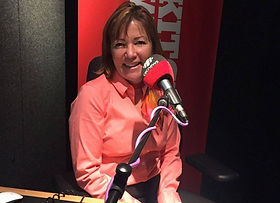
Norton Engineering Inc.
We love sewers
(See LinkedIn for the latest sewer research)
Norton's corporate goal is to make sewers better for the residents of Canada.

*Nobody else applied



Norton Engineering Inc. was founded by Barbara A. Robinson, M.A.Sc., P.Eng., in 2015. Barbara has been a professional engineer since 1991, and has worked in and around sewers since the beginning of her career.
Barbara has examined our sewer systems from cradle to grave, including specifications, design, construction, inspection, testing and acceptance, to determine why sewers are leaking across Canada. This research involved the hands on interviewing and job shadowing of hundreds of sewer operators, building officials, plumbers, etc. Then, she develops and publishes efficient and cost-effective solutions to many of the leakage problems.
Barbara has spent half of her career working in the field with operations, to understand how sewer systems actually work. She then became fluent in the Building Codes around all things sewer. Barbara speaks widely on sewer and building code standards and specifications, and how they are frequently incorrect, misunderstood, misapplied or ignored. She conceived of and brought to fruition the first ever national sewer standards in Canada, and continues to work closely with federal and provincial officials, politicians and media folks, to bring these essential issues to the fore.
Barbara tours the country speaking about all things sewer to service groups, stakeholders and the general public - providing essential public education, and demonstrating how this can be done. She appears in print, radio and TV frequently.
Norton is Canada's National Sewer Expert
Norton on TVO's the Agenda (2023)
"The Sewer Lady"
Barbara discusses private side sewer infrastructure with Steve Paikin of TVO's the Agenda. She explains to residents how they can reduce their risk of flood substantially, while at the same time protecting City sewers, pumping stations and wastewater treatment plants.
Norton introduces the new "Sewers are Not Trash Cans" program to Steve. Steve named me "the sewer lady", and later updated this moniker to "the sewer goddess". See link! This single discovery will substantially improve sewers across Canada.

Barbara has spent the past 6 or 7 years speaking widely to the general public across Ontario, via personal, interactive presentations at Zonta, Rotary, Probus and other groups. And, an enormous amount of media. The feedback she receives from these efforts is overwhelmingly positive.
Residents do not understand how to use their sewer, how to maintain it, and how to reduce flood risk. Through this unpaid effort, Barbara has developed public education materials that residents can understand and implement.
Municipalities (Engineers!) MUST Educate the Public About Sewer Systems









Norton has been installing
"Sewers are NOT Trash Cans" signs, n/c,
across Ontario.
Norton's research has uncovered (and solved!) an astounding reality (Spring, 2023).
Women's public washroom stalls do not contain trash cans (they are not required per the Plumbing Code in Canada). This means that women, when away from home, are flushing all sanitary products by necessity. That is a lot of ragging. Men and women may also be flushing "flushable" wipes when away from home, for the same reason. NB, flushable just means that the product can pass through your toilet. They are a disaster for sewers and the primary cause of fatbergs.
Norton's best practice recommendation is that municipalities immediately install a trash can and sewer sign in all of their facilities in women's and men's toilet stalls, to provide continuing education to the public about why this is so egregious. Next, they MUST provide the signs to their small businesses! For the cost of a sign ($20) and a trash can, the return on investment is made the first time a call to a plumber is averted. Removing this material from sewers will immediately reduce flood risk from blockages, formation of fatbergs, pump station failures, screenings trucked to landfill, and the discharge of deleterious material to the receiver for combined systems (e.g. Toronto, Hamilton).
Meanwhile, Norton is working towards getting the National Plumbing Code changed, and fast. Women also need sinks in ~30% of the stalls, so we can deal with menstrual products privately. Contact me if you'd like to participate in the Code Change Request.
Barbara was nicknamed "Norton" twenty years ago,
by her peers.
The name "Norton" is synonymous with sewer workers. Listen to our theme song from "The Honeymooners". Art Carney played Ed Norton, a sewer operator.
Barbara's unparalleled knowledge of sewers stems largely from the fact that she has spent half of her time in the field with operations staff, frequently doing sewer entries.